Discover GroundTruth
GroundTruth

GroundTruth
Author: The GroundTruth Project
Subscribed: 18,836Played: 46,551Subscribe
Share
© 2018-The GroundTruth Project
Description
At the height of the Vietnam War, a government insider named Daniel Ellsberg leaked 7,000 pages of classified documents to American newspapers. The Pentagon Papers revealed that Americans had been lied to for decades about the war. Fifty years later, Ellsberg reveals his evolution from Cold Warrior to Whistleblower in the GroundTruth Podcast series The Whistleblower: Truth, Dissent and the Legacy of Daniel Ellsberg.
Based at GBH in Boston, the award-winning GroundTruth Podcast has covered global affairs from the War in Afghanistan to rising populist nationalism through shoe-leather, on-the-ground reporting.
Based at GBH in Boston, the award-winning GroundTruth Podcast has covered global affairs from the War in Afghanistan to rising populist nationalism through shoe-leather, on-the-ground reporting.
68 Episodes
Reverse
After 10 seasons of the award-winning GroundTruth Podcast, we’re excited about what might come next.
But to find the best way forward, we want to hear from listeners like you: What stories do you feel are under-reported and need to be told? What questions do you have about the podcast?
Give us your feedback and ask us questions about the GroundTruth podcast, about our mission and our vision and our service programs in the field Report for America and more newly launched Report for the World. Your questions might be featured on a special episode.
And as a special thanks to loyal listeners, we'll send some very cool GroundTruth swag to the first three listeners who leave a voice message.
Here are the instructions:
Call us at (339) 365-3754 and leave the message.
In that voice message, share with us your feedback about the show: What seasons, episodes or topics you liked, and what you’d like to hear more of in the future.
Then, ask me questions about. It can be about the themes of different season , about particular interviews we featured, what we do here at GroundTruth – ask us anything.
Finally, be sure to leave a call back number so we can get in touch about sending you some swag.
In war, truth is the first casualty.
It's a military maxim attributed to Aeschylus, the father of Greek tragedy. In the lead up to the 20th anniversary of 9/11 and ahead of the withdrawal from a war that became the longest in American history, GroundTruth's founder Charlie Sennott returns to Afghanistan and revisits a conflict he has covered on the ground since its first battles and its first casualties.
Two decades later, amid an American departure from Afghanistan that many have compared to the fall of Saigon at the end of the Vietnam War, Sennott examines the two conflicts: the government's lies and deceptions about Vietnam revealed by Daniel Ellsberg’s Pentagon Papers, the lessons left unheeded by American leaders during the Afghan war, and why it took us so long to see the mounting lies of that war.
This episode concludes The Whistleblower, our 10th season of the GroundTruth Podcast, which began with the award-winning series Foreverstan, on-the-ground reporting from Afghanistan examining the first 14 years of the war. Listen to our first season: http://bit.ly/Foreverstan-Podcast
Now we’re going to take a step back and evaluate this podcast and think about our best way forward. How do we keep going and finding new ways to be there on the ground, telling audio stories that matter in under-covered corners of the world?
We’d like to hear your thoughts about the podcast. Call us and leave a voice message with your feedback at (339) 365-3754. We listen to everything you send us and we might even share some of them on this podcast.
The Whistleblower podcast series is part of a wider collaboration with UMass Amherst and GBH, including a two-day conference presented by GroundTruth and UMass Amherst on “Truth, Dissent and the Legacy of Daniel Ellsberg,” featuring a conversation between the Pentagon Papers whistleblower himself and NSA whistleblower Edward Snowden. Learn more here: https://bit.ly/UMass-Ellsberg-Archive
A class of college students at UMass Amherst became the first group of researchers to take on Daniel Ellsberg's vast archive. For two students, it's more than a history project: It's a family story.
We’d like to hear your thoughts about the podcast. Call us and leave a voice message with your feedback at (339) 365-3754. We listen to everything you send us and we might even share some of them on this podcast.
As we look ahead to Season 11 of the GroundTruth Podcast, we want to feedback from listeners like you: How do we keep going and finding new ways to be there on the ground, telling audio stories that matter in undercovered corners of the world?
Before he was helping plan the Vietnam War, Ellsberg was working at Rand Corporation as a nuclear war planner. In the late 1950’s and early 60’s, he came across a classified policy document that called for killing a fifth of the human population. “This, to me, was pure evil.” When he was facing trial for releasing the Pentagon Papers, he held another trove of secret documents on the Pentagon’s plans for nuclear war. His plan was to release these, most likely from prison. But in a strange twist, a natural disaster interrupted his plans.
In the series finale, the whistleblower leaks documents on U.S. nuclear policy in the Taiwan Straits written by his colleague Morton Halperin at the height of the Cold War. The documents, embedded below, are still considered classified, and could put him at risk of prison time.
This podcast series is part of a wider collaboration with UMass Amherst and GBH, including a two-day conference presented by GroundTruth and UMass Amherst on “Truth, Dissent and the Legacy of Daniel Ellsberg,” featuring a conversation between the Pentagon Papers whistleblower himself and NSA whistleblower Edward Snowden. Learn more here: http://umass.edu/ellsberg
We’d like to hear your thoughts about the podcast. Call us and leave a voice message with your feedback at *(339) 365-3754*. We listen to everything you send us and we might even share some of them on this podcast.
As we look ahead to the next season of the GroundTruth Podcast, we want to feedback from listeners like you: How do we keep going and finding new ways to be there on the ground, telling audio stories that matter in undercovered corners of the world?
Now facing a possible 115 years in prison, Daniel Ellsberg awaits his federal espionage trial. Meanwhile, Nixon unleashes his Plumbers in an attempt to silence Ellsberg, and Barbra Streisand sings for the defense! In this episode we trace the series of events that tied Daniel Ellsberg’s espionage trial to the fate of Richard Nixon’s presidency.
This podcast series is part of a wider collaboration with UMass Amherst and GBH, including a two-day conference presented by GroundTruth and UMass Amherst on “Truth, Dissent and the Legacy of Daniel Ellsberg,” featuring a conversation between the Pentagon Papers whistleblower himself and NSA whistleblower Edward Snowden. Learn more here: http://umass.edu/ellsberg
We’d like to hear your thoughts about the podcast. Call us and leave a voice message with your feedback at *(339) 365-3754*. We listen to everything you send us and we might even share some of them on this podcast.
As we look ahead to the next season of the GroundTruth Podcast, we want to feedback from listeners like you: How do we keep going and finding new ways to be there on the ground, telling audio stories that matter in undercovered corners of the world?
On September 30, 1969, Daniel Ellsberg opened his newspaper to a story out of Vietnam that would act as the trigger for copying the Pentagon Papers. We pick up on this wild ride when he offers the papers to members of Congress, who shrugged him off. He then went to the New York Times, the first publication of the papers landed on the front page on June 13th, 1971. Over the next 13 days, an FBI manhunt swept the Boston area for Ellsberg and his wife Patricia. Upon turning himself in, Ellsberg had sent copies of the papers to 17 newspapers around the country.
This podcast series is part of a wider collaboration with UMass Amherst and GBH, including a two-day conference presented by GroundTruth and UMass Amherst on “Truth, Dissent and the Legacy of Daniel Ellsberg,” featuring a conversation between the Pentagon Papers whistleblower himself and NSA whistleblower Edward Snowden. Learn more here: http://umass.edu/ellsberg
We’d like to hear your thoughts about the podcast. Call us and leave a voice message with your feedback at *(339) 365-3754*. We listen to everything you send us and we might even share some of them on this podcast.
As we look ahead to the next season of the GroundTruth Podcast, we want to feedback from listeners like you: How do we keep going and finding new ways to be there on the ground, telling audio stories that matter in undercovered corners of the world?
Daniel Ellsberg leaked the Pentagon Papers to the press knowing he could face the rest of his life in prison. But what turned this Cold War hawk into an anti-war dove? What were the motivating events and people who influenced his transformation? At 15, a tragic car accident would shape his sense of responsibility to the wider world. His time in the Marine Corps strengthened his dedication to serving his country. But in 1968 he would begin an unlikely encounter with another faction, the anti-war movement. Their dedication to serving the truth would lead Ellsberg to a massive act of dissent.
We’d like to hear your thoughts about the podcast. Call us and leave a voice message with your feedback at *(339) 365-3754*. We listen to everything you send us and we might even share some of them on this podcast.
As we look ahead to the next season of the GroundTruth Podcast, we want to feedback from listeners like you: How do we keep going and finding new ways to be there on the ground, telling audio stories that matter in undercovered corners of the world?
In the series premiere, we pick up on Ellsberg’s first day at the Pentagon, the day he became acquainted with what he came to call the “lying machine.” It was August 4, 1964. Contradicting accounts of an attack in The Gulf of Tonkin would give President Johnson the green light to lead the country into war in Vietnam based on a lie. We follow this thread, and the deception, through his time in the field in Vietnam, where he saw how the lies on the ground made their way back to Washington. Back home, Ellsberg observes the power of leaking government lies: His very first leak to The New York Times reporter Neil Sheehan helped to end a presidency.
This podcast series is part of a wider collaboration with UMass Amherst and GBH, including a two-day conference presented by GroundTruth and UMass Amherst on “Truth, Dissent and the Legacy of Daniel Ellsberg” featuring a conversation between the Pentagon Papers whistleblower himself and NSA whistleblower Edward Snowden. Learn more: https://www.ellsbergpapers.org/conference/
We’d like to hear your thoughts about the podcast. Call us and leave a voice message with your feedback at *(339) 365-3754*. We listen to everything you send us and we might even share some of them on this podcast.
As we look ahead to the next season of the GroundTruth Podcast, we want to feedback from listeners like you: How do we keep going and finding new ways to be there on the ground, telling audio stories that matter in undercovered corners of the world?
Americans across the country opened their newspapers to the first reports based on classified documents leaked by a government insider, Daniel Ellsberg. Consisting of 7,000 pages of top secret documents, the Pentagon Papers revealed in cold, analytical detail how four presidential administrations lied to the American public: the reasons for entering the war, the failures of their policies, the low chances of success, and the reasons for staying the course. But for Ellsberg, the facts were overwhelming, the lies, extraordinary, and the dissonance too deafening for him to simply stay the course, as so many other administration officials had done.
This 5-part podcast series sheds light on the pivotal moments and role models that motivated Ellsberg to risk 115 years in jail in service to the truth. The series also explores his role as a nuclear planner, firmly convinced that a nuclear war would vanquish the human race in his lifetime. In exclusive interviews with Ellsberg, he reveals his evolution from Cold Warrior to whistleblower, the legacy of truth and dissent in the U.S., and their implications for our democracy today.
This season of the GroundTruth Podcast is part of a year-long public history project in collaboration with the University of Massachusetts Amherst and GBH, Boston and was made possible through the generous support of the UMass Chancellor’s Office.
We’d like to hear your thoughts about the podcast. Call us and leave a voice message with your feedback at *(339) 365-3754*. We listen to everything you send us and we might even share some of them on this podcast.
As we look ahead to the next season of the GroundTruth Podcast, we want to feedback from listeners like you: How do we keep going and finding new ways to be there on the ground, telling audio stories that matter in undercovered corners of the world?
The turmoil of the 2020 presidential election campaigns has raised questions about just what it means to vote.
Who gets to pull the lever? How can someone cast their ballot? Will all of the votes be counted in time?
GroundTruth’s Voting Rights Fellows share local stories of voters, activists and election officials working to preserve the process this Nov. 3.
Explore our Election 2020 reporting: https://thegroundtruthproject.org/election-episode-2020-and-counting/
Keep up with our on-the-ground reporting: https://bit.ly/2Jj1BRL
We’d like to hear your thoughts about the podcast. Call us and leave a voice message with your feedback at *(339) 365-3754*. We listen to everything you send us and we might even share some of them on this podcast.
As we look ahead to the next season of the GroundTruth Podcast, we want to feedback from listeners like you: How do we keep going and finding new ways to be there on the ground, telling audio stories that matter in undercovered corners of the world?
When you think about Kentucky's deep red politics today, it's likely the face of Senate Majority Leader Mitch McConnell and his laconic drawl that comes to mind. But one northern corner of this solidly Republican state is streaked blue by its state house representation.
Covering local government in northern Kentucky through our Report for America program, reporter Julia Fair with the Cincinnati Enquirer has been following this trend just across the Ohio River. It’s there, in Kentucky's District 67, that she’s been covering a race for the Kentucky general assembly. And though you may think you know where this story is headed, it’s not politics as usual. As Julia says, in her time reporting on local politics, she’s never seen a race quite like this – one that is starkly framed by a time of deep political divides.
We’d like to hear your thoughts about the podcast. Call us and leave a voice message with your feedback at *(339) 365-3754*. We listen to everything you send us and we might even share some of them on this podcast.
The origins of Blues music is a complex weave of traditions, and the genre echoes suffering and endurance through centuries of hardship. Evolving from blended musical forms brought to the United States by enslaved Africans, then taking on the rhythm of work in the fields and heart of spirituals, the oppressive environment of the Jim Crow South ultimately shaped the Blues as we know it today.
Today, the Blues are more often romanticized as the ballads of down and out troubadours, rambling and poor, but following their passion for music. Blues legend Robert Johnson’s story epitomizes these hard realities and an enduring mythology that surrounds his memory. Legend has it that Johnson signed a deal with the devil to perfect his guitar playing. And like so many legends, mystery shrouds the actual person and what really happened in his 27 years on earth, how he died and where he is buried. Until 2002, nobody knew for certain where the King of the Delta Blues Singers was laid to rest.
Report for America corps member Alexandra Watts takes us on a journey to Robert Johnson’s final resting place in the Mississippi Delta.
Listen to our Blues playlist: https://bit.ly/3imgIWn
We’d like to hear your thoughts about the podcast. Call us and leave a voice message with your feedback at *(339) 365-3754*. We listen to everything you send us and we might even share some of them on this podcast.
For most of us, it's hard to ignore the rising threat of climate change. But the sheer magnitude of the devastation it could cause is daunting. For those journalists trying to convey the sense of urgency to the public, it can become overwhelming. Living on Cape Cod, where towns and residents are trying to beat back rising tides with seawalls and sand, WCAI climate change reporter Eve Zuckoff is finding it difficult to build barriers of her own – between the existential threat she covers professionally and her life outside of work.
Learn more: https://gtruth.co/35kZh5Z
We’d like to hear your thoughts about the podcast. Call us and leave a voice message with your feedback at *(339) 365-3754*. We listen to everything you send us and we might even share some of them on this podcast.
For many growing up in Chicago, the barber shop is a refuge. Raised on the Windy City's West Side, Report for America corps member Manny Ramos knows that fact well.
"Barbers do more than just cut hair," he says, "they record history."
They hear about the aspirations of the people whose hair they trim, and whose major life events they mark together. Ramos' reporting shows us how the barber shop has come to play a key role as a "community center" in Chicago, and how the loss of one barber rippled through the South Side.
Learn more: https://gtruth.co/2E8THIN
We’d like to hear your thoughts about the podcast. Call us and leave a voice message with your feedback at *(339) 365-3754*. We listen to everything you send us and we might even share some of them on this podcast.
In August 2018, well before any thought of a pandemic sweeping the country, Mississippi’s prison system saw a spike in inmate deaths. Correctional officials attributed many of these to “natural causes.” But these deaths aren't the only concerns for inmates and their families. Conditions in some of these prisons – men sleeping five to a cell or the sparse and unappetizing meals they get on a day to day basis or what the showers look like – have come to light through documentation by the inmates themselves. For this episode, Report for America corps member Michelle Liu takes us inside her investigation into these unexplained deaths, why the victims’ families remain in the dark and what life is like for the inmates within the Mississippi Department of Corrections. Read Liu's in-depth reporting and further reporting on inmate rights, along with some of the sounds behind the story here: https://gtruth.co/3fEo4TY
We’d like to hear your thoughts about the podcast. Call us and leave a voice message with your feedback at *(339) 365-3754*. We listen to everything you send us and we might even share some of them on this podcast.
Bird Singing is an oral tradition that has been passed down for centuries among the tribes across the American Southwest. These stories are sung by male members of tribes – from young boys to elders – whose only accompaniment is a gourd fashioned into a shaker. But the threat of COVID-19 has forced these traditions online, in isolation. See video of Bird Singers performing here:
https://gtruth.co/2X4lyjh
We’d like to hear your thoughts about the podcast. Call us and leave a voice message with your feedback at *(339) 365-3754*. We listen to everything you send us and we might even share some of them on this podcast.
“Deadly Force,” a new podcast series from Report for America host newsroom WPLN in Nashville, focuses on the trial of the first Nashville police officer to be charged with murder for shooting someone in the line of duty. Through newly uncovered documents, original interviews and audio footage, Deadly Force gets a glimpse into the mind of a police officer struggling to make sense of when to use his gun and the culture in Nashville surrounding the use of force. We speak with reporter Samantha Max on how the investigative report unfolded, and the status of the murder trial, which had been delayed due to COVID-19.
https://gtruth.co/3jcoyUd
We’d like to hear your thoughts about the podcast. Call us and leave a voice message with your feedback at *(339) 365-3754*. We listen to everything you send us and we might even share some of them on this podcast.
July 3, 2018. It was almost Independence Day.
Lee Eric Evans straightened a flag pole on his aunt’s front porch. He carefully unfurled an American flag so that it hung properly, making sure it didn’t touch the ground.
Lee, who is 26 years old, was fussing over the flag for the 4th of July celebrations in the Farish Street Historic District which would happen the next day.
I was working on a story about the importance of the District as a hub of black-owned businesses in the 1920’s and 1930s. I wanted to understand how this once-thriving economy had descended into neglect and how the city had become seized by violence.
I told Lee Eric why I thought the story was important, and asked if I could talk with him about the neighborhood.
Within days, Lee Eric Evans would be shot dead: https://thegroundtruthproject.org/portrait-struggle-violence-mississippi/
We’d like to hear your thoughts about the podcast. Call us and leave a voice message with your feedback at *(339) 365-3754*. We listen to everything you send us and we might even share some of them on this podcast.
Report for America corps member Chris Ehrmann continues on his road trip across America, picking up in St. Louis, where economic recovery depends on where you live. Chris listens to protesters from Denver to Los Angeles, in the wake of the killing of George Floyd, who are wondering, is this a tipping point?
https://thegroundtruthproject.org/on-the-ground-with-report-for-america-pandemic-and-protest/
We’d like to hear your thoughts about the podcast. Call us and leave a voice message with your feedback at *(339) 365-3754*. We listen to everything you send us and we might even share some of them on this podcast.
Report for America corps member Chris Ehrmann embarked on a road trip across America, literally, from Times Square to Los Angeles, California. He traced the new landscape of COVID-19 across time zones and state lines. He spoke to those whose loved ones have been directly impacted by the virus, squaring off against those impacted by a devastated economy. In the wake of the killing of George Floyd, his journey to witness a nation under lockdown was suddenly layered with thousands of protestors pouring into the streets demanding justice.
https://thegroundtruthproject.org/on-the-ground-with-report-for-america-pandemic-and-protest/
We’d like to hear your thoughts about the podcast. Call us and leave a voice message with your feedback at *(339) 365-3754*. We listen to everything you send us and we might even share some of them on this podcast.








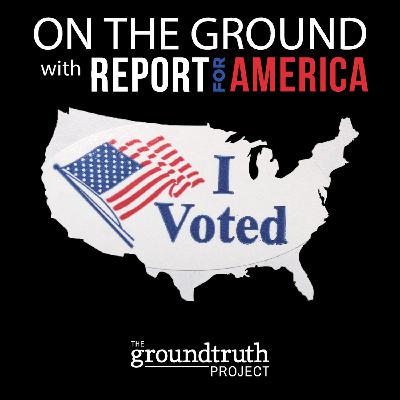



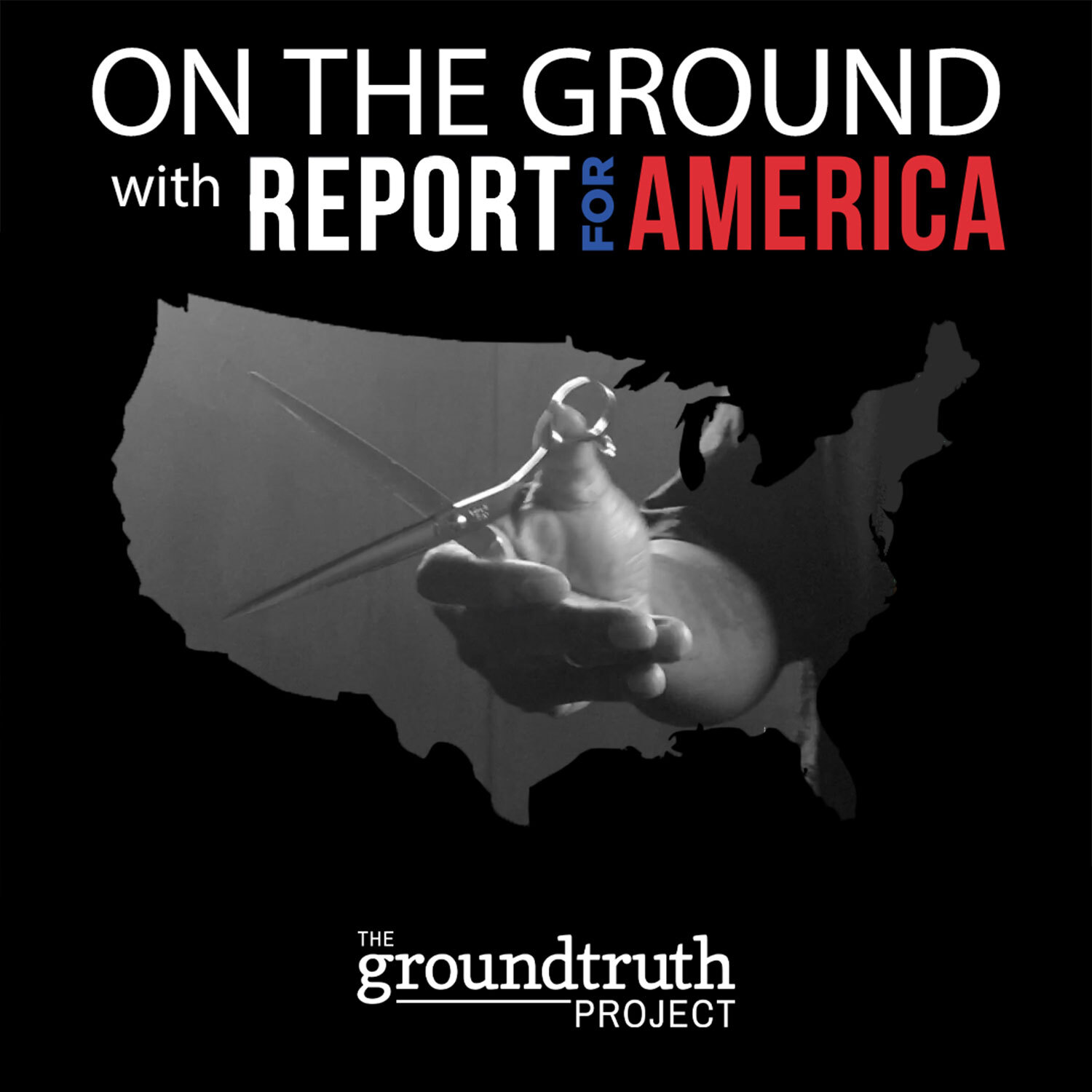


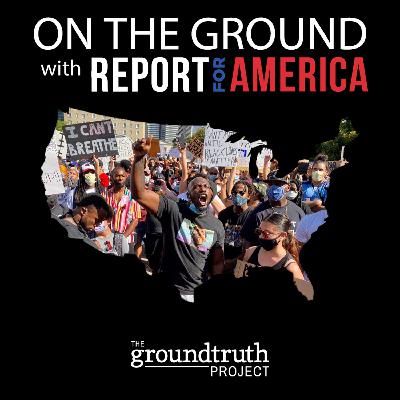
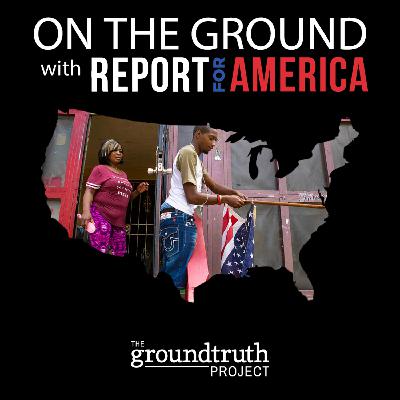
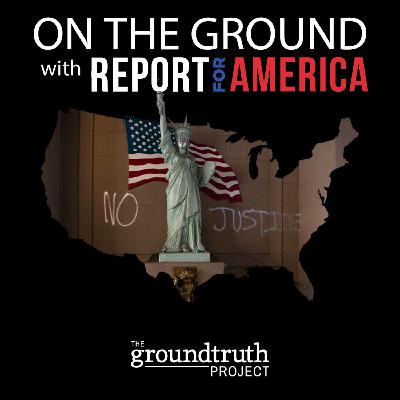



Remarkable life lived by Mr. Ellsberg. A man of conviction, rare indeed!
As a Canadian teen during this era, news of the Vietnam war, protests, Daniel Ellsberg's valiant efforts to stop the war received only sendationalised news stories that were quickly overshadowed by Watergate. I highly recommend this podcast for it's extensive depth of coverage of events and consequences that affected world history. Kudos!
If you’ve watched The Post movie with Tom Hanks and Meryl Streep, you know about the Pentagon Papers and the big risks newspapers took to get out the truth about Vietnam. But this podcast is about the man in the opening scene — Daniel Ellsberg — the govt insider who risked life in prison to tell the truth about the Vietnam war. He released the papers to the press. GroundTruth got exclusive interviews with Ellsberg and unprecedented access to his archives for this limited series.